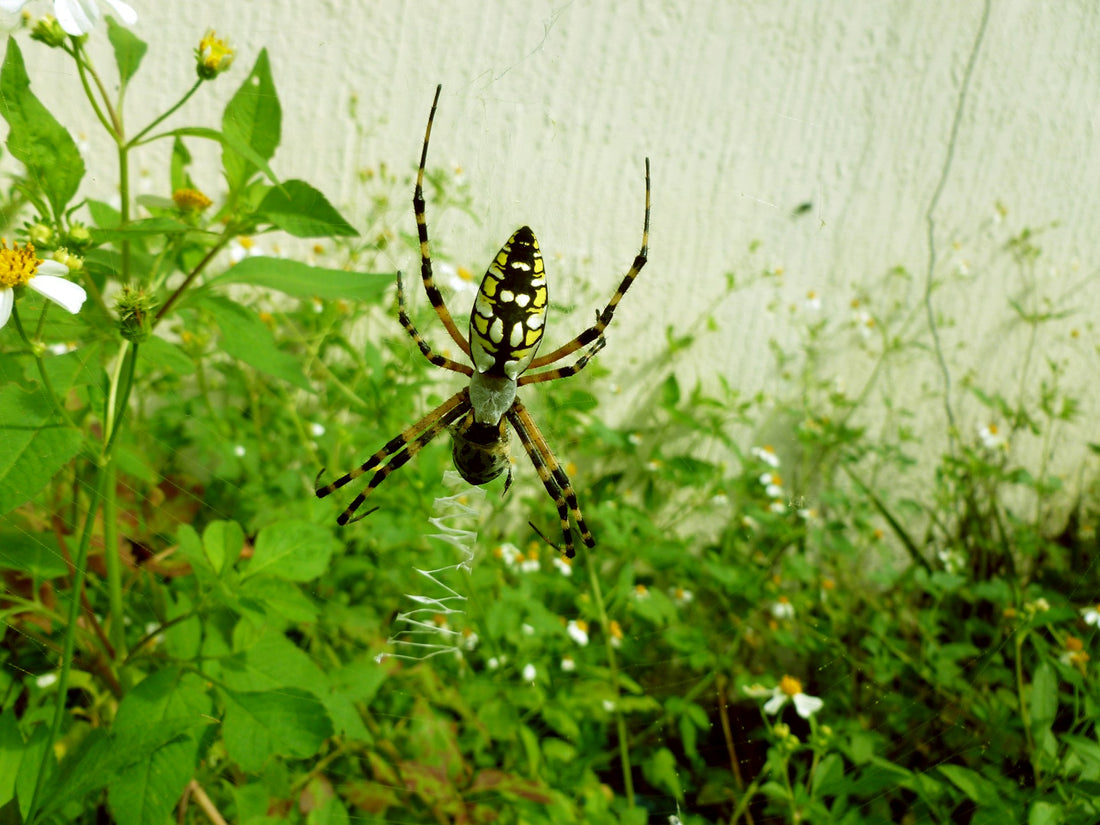Spiders As Natural Pest Control
One of the most significant benefits of having spiders in your garden is their remarkable ability to control insect populations. Spiders are voracious predators, feasting on a wide range of garden pests such as aphids, mosquitoes, beetles, flies, and even spider mites. They act as nature's pest control agents, keeping these unwanted insects in check before they can wreak havoc on your plants. By allowing spiders to thrive in your garden, you can reduce the need for harmful chemical insecticides and promote a more natural approach to pest management.
In addition to controlling pests, spiders indirectly help protect your plants from diseases caused by fungal and bacterial pathogens. Many insects act as carriers for these harmful microorganisms, spreading them from plant to plant as they feed. By preying on these insects, spiders minimize the spread of diseases and reduce the risk of plant damage. A healthy population of spiders in your garden can contribute to the overall well-being of your plants.
Spiders are your allies. By relying on spiders for pest control, you can reduce your dependence on synthetic insecticides that can harm beneficial insects, birds, and other wildlife. Spiders offer a sustainable and eco-friendly solution to pest management, ensuring a harmonious balance between the various organisms in your garden. Embracing spiders as part of your garden ecosystem aligns with the principles of organic gardening and promotes a healthier environment for both humans and wildlife.
Common Spiders in Your Garden
Orb-Weaver Spiders
Orb-weaver spiders are perhaps the most recognizable spiders in gardens. These spiders are known for their intricate, circular webs and vibrant coloring. Garden spiders, with their yellow and black markings, are a prime example of orb-weavers found in North America. These spiders are harmless to humans and play a vital role in controlling insect populations.
Grass Spiders
Grass spiders, also known as funnel-weavers, are an essential part of the garden ecosystem. They create funnel-shaped webs close to the ground, camouflaging themselves within the vegetation. These spiders are fast hunters, pouncing on unsuspecting prey that wanders into their webs. With their ability to control ground-dwelling pests, grass spiders contribute to a healthy garden environment.
Hunting Spiders
Unlike orb-weavers and grass spiders, hunting spiders do not rely on webs to catch their prey. Instead, they actively hunt down insects in the grass, plants, and other hiding spots. Wolf spiders, known for their brown color and distinctive markings, are a prominent example of hunting spiders. They play a crucial role in keeping pest populations in check and can even help control common garden pests like caterpillars and beetles.
Attracting Spiders to Your Garden
To encourage spiders to take up residence in your garden, it's important to create an environment that is favorable to their needs.
- Create a diverse garden with a variety of plants, including flowers, shrubs, and trees. Different plant species attract different types of insects, providing a diverse food source for spiders.
- Using natural mulches like straw or garden debris provides spiders with a favorable habitat. Mulch mimics a forest floor, attracting spiders that prefer this environment.
- Avoid using chemical pesticides that can harm spiders and other beneficial insects. Pesticides disrupt the delicate balance of your garden ecosystem and can have long-lasting negative effects.
- Incorporate structures such as arbors, trellises, and fencing that can serve as shelter for spiders. These structures offer hiding places and create a more inviting environment for spiders to thrive.
While spiders are generally harmless to humans, it's natural to have concerns about their presence.
Do Spiders Bite?
Spiders may bite if they feel threatened, but most species are not aggressive towards humans. In fact, spiders prefer to avoid human contact whenever possible. Bites from garden spiders are rare and generally result in minimal symptoms, similar to a bee sting. It's important to note that severe reactions to spider bites are extremely rare.
Are There Dangerous Spiders in Gardens?
While some spiders can be venomous, the ones typically found in gardens are not a cause for concern. Spiders like black widows and brown recluses tend to avoid garden environments and seek shelter in undisturbed areas. It's essential to be aware of the potential dangers associated with these spiders but remember that they are unlikely to take up residence in your garden.



